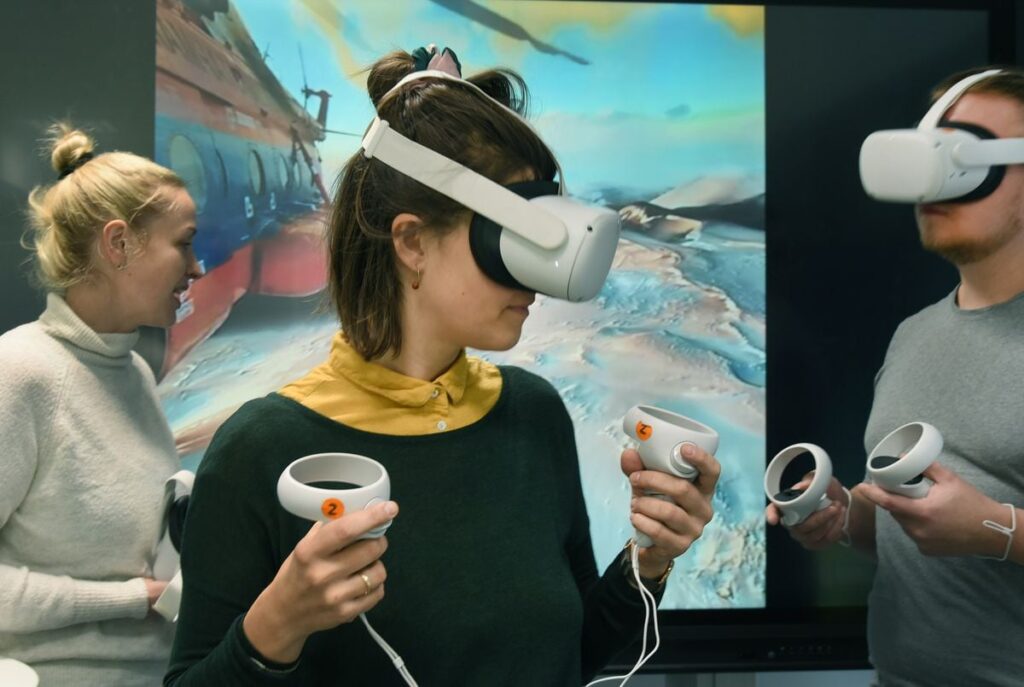Should we say goodbye to the exclusivity of human thought? Artificially generated intelligence challenges the idea that creativity is the exclusive domain of humans. homo sapiens. Does this represent a new era of human-machine creation or a threat to human ingenuity? And what role should education play?
Although there is still insufficient scientific evidence regarding the impact of artificial intelligence on education, there is clear evidence of how this technology can facilitate administrative tasks and provide complementary resources to extend or enrich learning. There is an example.
This technology is rapidly evolving. They are already past the toddler stage of hearing, seeing, and speaking, and are now in the stage of reading, writing, programming, analyzing complex data sheets, synthesizing reports, speaking countless languages, and responding to many other languages. We are transitioning. Features are emerging from the technology field at an astonishing speed. Its adoption is occurring at an unprecedented scale and pace. In recent research, young people enthusiastically describe artificial intelligence as an “external brain.”
But every disruption requires readjustment. New regulations, guidelines, and protection frameworks are being adopted by governments at varying rates. Educational institutions publish instructions and guides to advise teachers and students. This task is both complex and important. Because it's not an easy task to provide guidance on technology that we don't fully understand and, moreover, is constantly changing.
The opportunities these technologies offer are clear, but it is important to think and discuss (before acting) both the aspects that we do not understand well and the things that we do not yet know. I don't know. For example, what are the implications of the ubiquitous introduction of machines that think for us? What are the side effects of cognitive automation, and how will this impact the development of new generations? Is it okay to not teach knowledge and skills that can be easily automated? What will happen to data protection and privacy if these machines are programmed to learn and never forget?
Given the carbon footprint that mineral extraction and these technologies generate, can we afford to boost generative AI when we still know so little about its environmental impact? What lessons can we draw from previous technology disruptions to avoid widening the gap between those who have access to technology and those who don't?
To answer these and other questions, we can interrogate people who are mistakenly called “intelligent” agents (who lack emotional understanding, self-awareness, or intuition). But I encourage you to take this time to think for yourself how to act with wisdom and foresight, and to reflect on four key vectors.
First, the technology, connectivity, and data infrastructure needs to be properly distributed across different parts of the globe (a good guide is to look at places without internet access).
The second is mission-based governance. This is very important as well as publishing framework documentation. Necessary guidance, protection, support, coordination and safety measures must also be provided. The systems that currently exist will probably need to be looked at (or reinvented) because they were created to operate in very different circumstances than the current system.
Third, protection from the risks associated with this technology. Further research is essential. We need to develop the ability to monitor and be alert to known risks (and those yet to be discovered). We must view the automation, manipulation, bias, plagiarism, and invasion of privacy of misinformation not as another information pandemic, but as an educational challenge to be addressed. This challenge needs to be addressed both through regulation and the creation of new jobs and profiles that can address these challenges.
And the fourth is capability generation. Technology evolves rapidly, but it quickly becomes obsolete. On the other hand, humans have an amazing ability to adapt. Technology that seemed like magic 12 months ago is just a tool today, and perhaps soon we will no longer see it as disruptive. However, this requires the development of new skills, both in terms of education and citizenship. For example, find out what it means to be literate in this context, what adjustments need to be made to the curriculum, and whether the way you teach or apply knowledge needs to be adapted. How can we make this technology work for teachers, and vice versa?
Embracing the disruption brought about by generative AI without hesitation or constraint can be just as harmful as ignoring or prohibiting its use. If the expansion of artificial intelligence over the past few months has taught us anything, it's that openness and caution must go hand in hand. Even if we travel in self-driving cars, we can't move into the future without looking in the rearview mirror.
cristobal cobo He is an education and technology expert at the World Bank.
Apply our weekly newsletter Get more news coverage in English from EL PAÍS USA Edition


